Ah, pickles! Those tangy, crunchy delights can jazz up a sandwich or be nibbled straight from the jar. But as you’re enjoying that dill-infused bite, has your feline friend ever given you that unmistakable stare of intrigue, making you wonder, Can cats eat pickles?
Before you decide to share your snack, let’s embark on a journey to understand whether pickles are a harmless treat or a hidden danger for our curious kitties. Grab a jar, and let’s dive in!
Are Pickles Safe For Cats?
No, pickles are not recommended for cats. While the primary ingredient of pickles, cucumber, is not inherently harmful to cats, the brine solution in which cucumbers are pickled contains high levels of salt and vinegar.
Excessive salt can lead to sodium ion poisoning in cats, causing symptoms like vomiting, diarrhea, tremors, and seizures. It’s always best to keep pickles away from your feline friends and offer them cat-appropriate treats instead.
Vinegar and other spices or flavorings used in pickling can irritate a cat’s digestive system.
The Feline Palate: Unique Tastes and Peculiar Preferences
Cats are notorious for their picky eating habits. One day, they might turn up their noses at a carefully prepared gourmet meal, and the next, they’re enthusiastically munching on a houseplant.
This peculiar behavior can be attributed to their evolutionary history as obligate carnivores. Cats’ bodies are designed to thrive on a diet of animal protein. So, their reactions can be unpredictable regarding non-meat items like pickles.
The Curious Case of Cucumbers
Pickles are essentially cucumbers that have transformed the pickling process. So, can cats indulge in these tangy delights? The answer largely hinges on the main ingredient: cucumbers.
Fortunately, cucumbers themselves are not toxic to cats. They can offer a refreshing and hydrating treat on a hot day. Many felines have been observed nibbling on cucumber slices without any adverse effects.
However, it’s essential to remember that cats have taste preferences that differ from ours. While some cats may nibble on cucumbers, others might give them the cold shoulder.
It’s all about individual taste buds and personalities when it comes to cats and pickles. Just like how some humans adore certain foods while others can’t stand them.
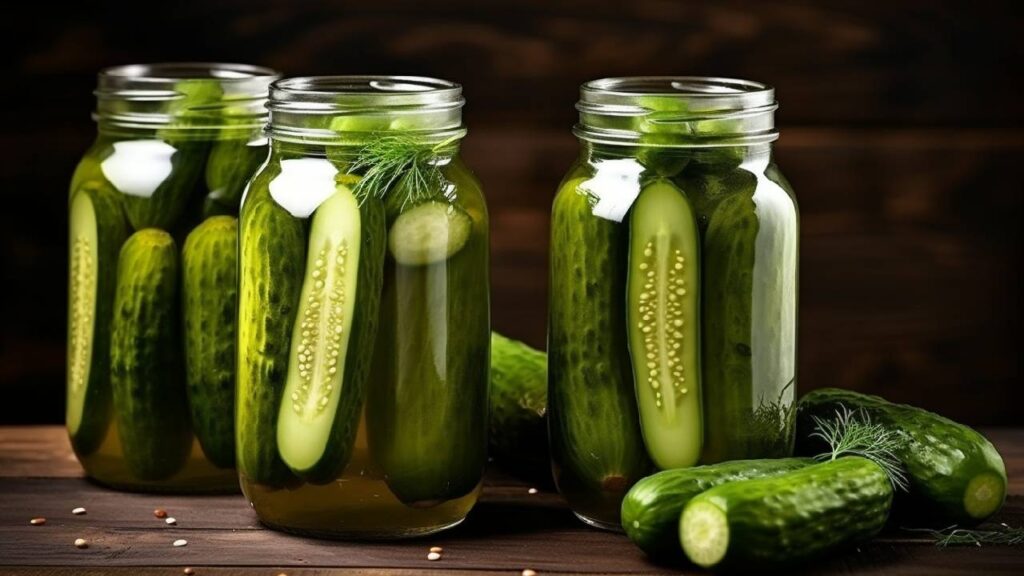
The Sneaky Salt Factor
One of the primary concerns when offering pickles to cats is the salt content. Holes are typically soaked in a brine solution heavily laden with salt. Cats, however, have a low tolerance for excessive salt intake.
High salt levels can lead to various health issues, including electrolyte imbalances, dehydration, and kidney problems. So, even if your cat shows a fleeting interest in pickles, it’s best to avoid sharing this salty snack.
Navigating Other Pickle Ingredients
Beyond cucumbers and salt, pickles often contain various other ingredients, such as spices, herbs, and garlic. Garlic and its close relative, onion, belong to the Allium family, which is known to be toxic to cats.
Even small amounts of garlic or onion can lead to severe health complications, including damage to red blood cells. Therefore, ensuring that the pickles you’re considering sharing with your feline friend do not contain these harmful ingredients is crucial.
What Should I Do If My Cat Eats Pickles?
Accidents happen, and your mischievous feline might sneak a nibble of a pickle when you’re not looking. If you catch your cat indulging in this tangy temptation, here’s what you should do:
- Monitor their Behavior: Most likely, a tiny nibble of pickle won’t cause immediate harm. Keep an eye on your cat for any unusual behavior, vomiting, diarrhea, or changes in appetite.
- Stay Hydrated: Offer your cat plenty of fresh water to help flush out any excess salt they might have ingested.
- Consult the Vet: If you notice any adverse reactions or suspect your cat consumed a lot of pickles, it’s best to contact your veterinarian. They can provide tailored advice based on your cat’s health and circumstances.
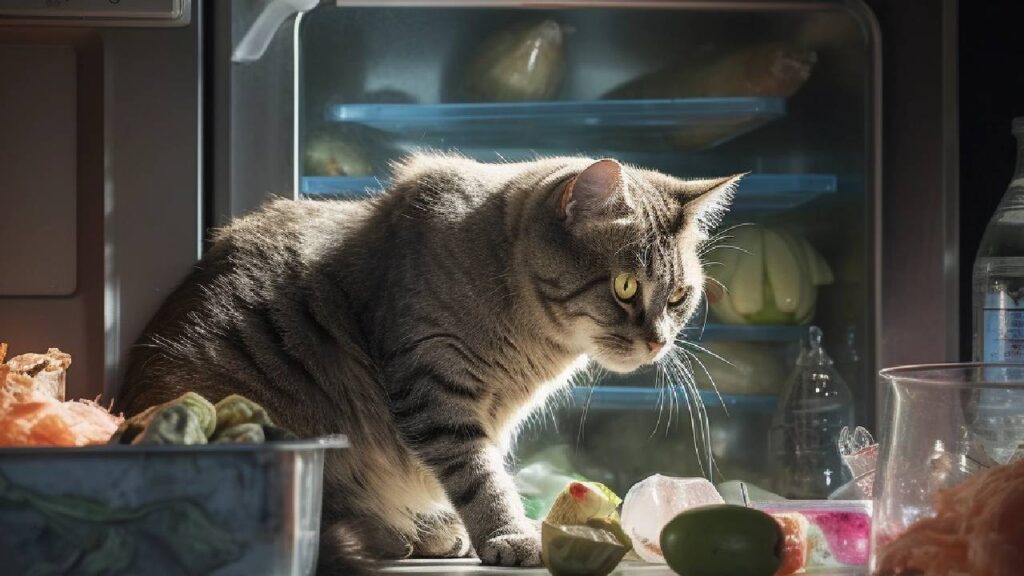
The Bottom Line: Cats and Pickles
While pickles aren’t inherently toxic to cats, they aren’t an ideal treat in the grand scheme of things. Cats have specific dietary requirements best met through high-quality, balanced cat food. If you want to treat your feline friend, plenty of cat-friendly options are available that won’t risk their health.
Remember, your cat’s well-being is your utmost priority. Before offering new food to your feline companion, it’s always a good idea to research and consult your veterinarian to ensure that it aligns with their nutritional needs and won’t jeopardize their health.
So, the next time you’re savoring a delectable pickle and your cat gazes at you with those curious eyes, you know to make an informed decision. While a tiny nibble of cucumber might not hurt, it’s best to steer clear of sharing salty, spicy, or garlicky pickles with your feline friend.
Their unique dietary requirements and sensitivities call for careful consideration when introducing any new foods into their diet. After all, a happy and healthy cat is the ultimate goal, even if it means saving the pickles for your enjoyment.

FAQs
Can I give my cat a small piece of plain cucumber instead of pickles?
Plain cucumber in small, bite-sized pieces can be a safe and hydrating cat treat. Remove any seeds and skin before offering it to your feline friend.
Are there any potential benefits to giving my cat cucumbers?
Cucumbers can provide a low-calorie, water-rich snack for cats. The high water content can help with hydration, especially during warmer months. However, always consider your cat’s individual preferences and monitor their reaction.
My cat accidentally licked some pickle juice. Is that a cause for concern?
A tiny lick of pickle juice is unlikely to pose an immediate threat. However, be attentive to changes in behavior, appetite, or bathroom habits. If you notice anything unusual, consult your vet.
Can I offer my cat homemade pickles with reduced salt content?
While reducing the salt content in homemade pickles is a step in the right direction, avoiding giving pickles to cats is still recommended. Their digestive systems are sensitive to salt, and it’s best to prioritize treats formulated explicitly for feline consumption.
How do I know if my cat is sensitive to cucumbers or pickles?
Watch for any signs of digestive upset, such as vomiting or diarrhea, after your cat consumes cucumbers or pickles. If you notice these symptoms, it’s best to avoid offering them in the future.
What should I do if my cat accidentally ingests pickles with onion or garlic?
If you suspect your cat has consumed pickles containing onion or garlic, contact your veterinarian immediately. Onion and garlic can be toxic to cats, and prompt medical attention is essential to prevent complications.


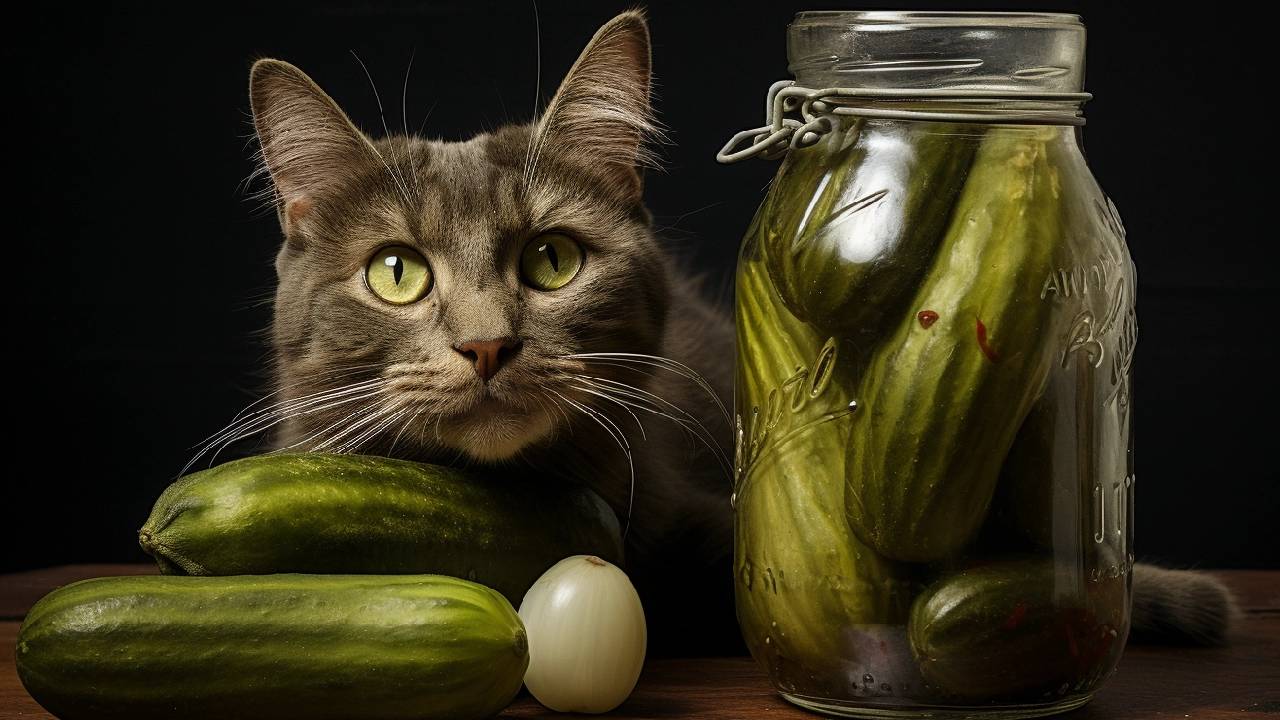

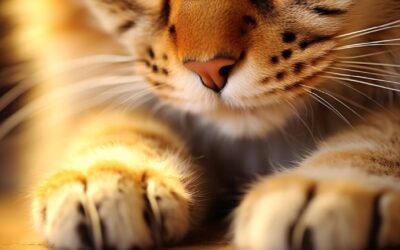
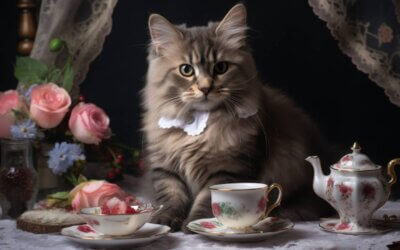
Is there any other human food I should be cautious about sharing with my feline friend?